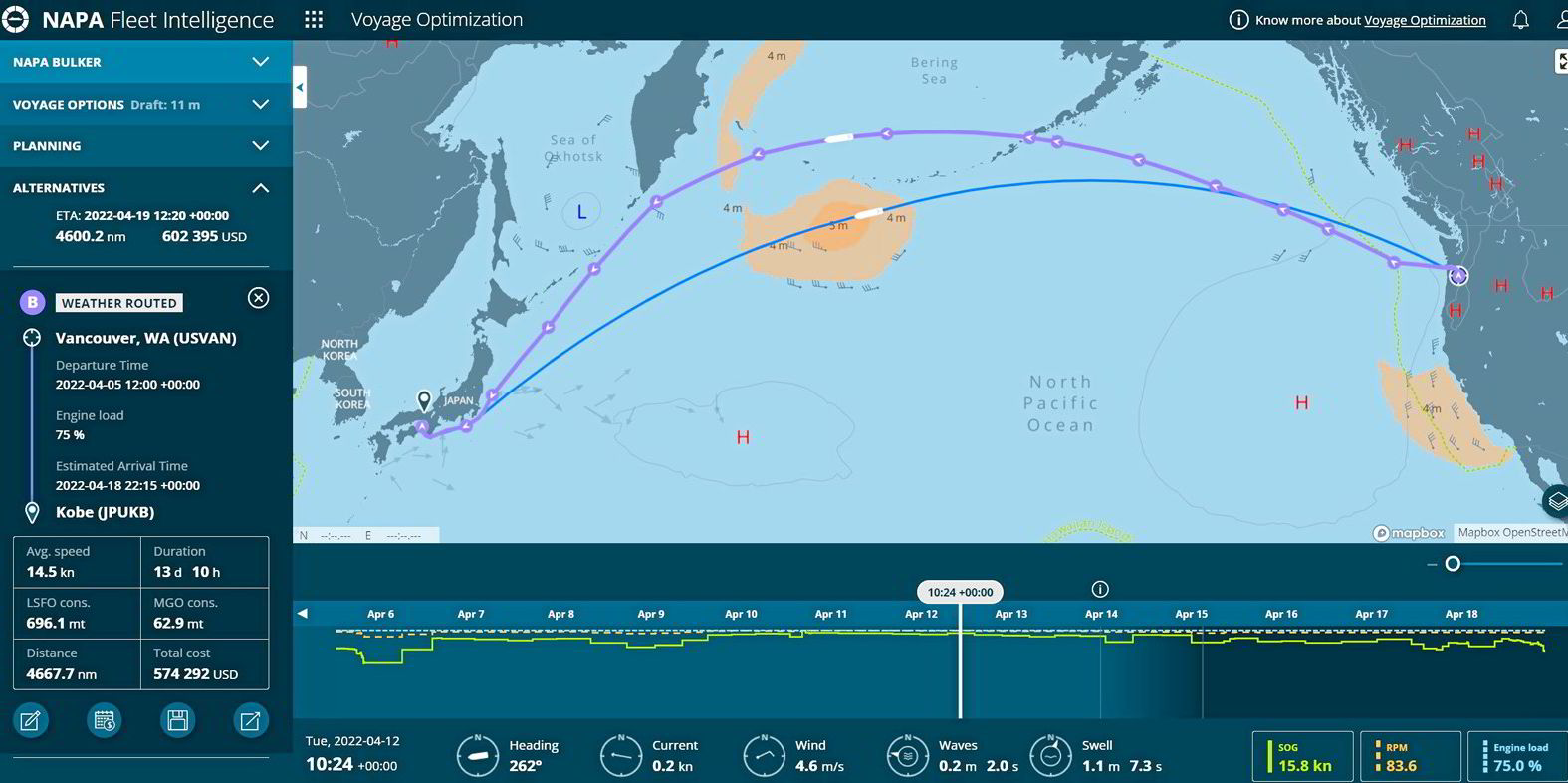Japan’s Marubeni Group, which owns around 50 ocean-going ships, is to assess the fuel and carbon emission savings it can achieve through voyage optimisation with maritime software services firm NAPA and class society ClassNK.
NAPA will use its systems to analyse retrospectively the impact of the Energy Efficiency Existing Ship Index (EEXI) on actual vessel performance across the general trading company’s fleet and compare it against similar fleets.
ClassNK will then verify the analysis and based on this, NAPA will predict how well Marubeni’s vessels, which are mainly bulk carriers, will be able to perform from 2023 onwards when the EEXI and CII Carbon Intensity Indicator (CII) requirements enter force.
An aspect considered will be Marubeni’s need to remain market competitive as it moves to operate ships under reduced propulsion power.
“With so many options on the table, it makes sense to start by finding out what is achievable by just optimising voyages, without the immediate need for any new fuels or technology,” said Naoki Mizutani, managing director at NAPA Japan.
NAPA’s Fleet Intelligence platform combines the Finland-based firm’s expertise in naval architecture with many years of data on sailed voyages and weather conditions.
The companies will analyse the effect of EEXI requirements on Marubeni’s fleet in terms of transport capacity, CO2 emissions and fuel consumption.
NAPA will also calculate the CII for vessels using historical operation data and predict how much performance can be improved with its weather routing system.





